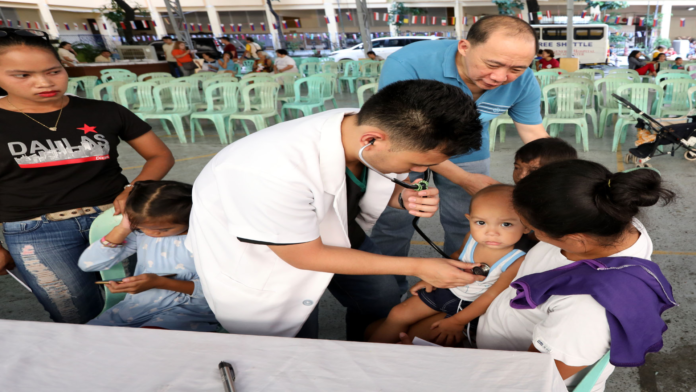President Ferdinand R. Marcos Jr. has approved the creation of a coordinating council for the Universal Health Care (UHC) law, Health Secretary Teodoro Herbosa said Tuesday.
Herbosa said the establishment of the body would ensure the rollout of healthcare functions within a well-integrated system.
“The problem we’re trying to solve is the fragmentation of the health system, we saw this during the Covid-19 (pandemic). Because of the local government code, (the) local health system was given to municipal mayors and governors,” he said in a Palace briefing.
The council will serve as a governing body that will oversee the implementation of the UHC law, the estimated total of the national cost for the UHC, and the implementation of UHC at the local government level.
The DOH will chair the council with the Department of the Interior and Local Government as its co-chair.
Its member agencies include the Department of Information and Communications Technology, Department of Budget and Management, Department of Finance, Philippine Health Insurance Corporation, Philippine Regulation Commission, National Economic and Development Authority, Technical Education and Skills Development Authority, Commission on Higher Education and Department of Education.
The council will standardize the health policies, Herbosa said.
“What happens is there is going to be a special health fund which is emphasized in the law, that’s why we created the council to watch the spending of the money and the implementation will be standard for all different local government units (LGUs),” he said.
“The council will police or monitor how LGUs or local health systems would be spending funds, income from PhilHealth, and how the other systems can be improved.”
UHC Act implementation updates
Under the UHC Act, which was enacted in February 2019, the DOH, the DILG, PhilHealth and LGUs will endeavor to integrate healthcare into province and city-wide healthcare systems.
Since 2021, Herbosa reported that 71 LGUs have committed to integrate their local health systems. These were labeled as UHC Integration Sites which consist of 59 provinces and 12 highly-urbanized cities.
“Starting this year 2023, we already engaged five UHC Integration Sites to become primary care provider network sandbox or trials or pilots and these are Baguio, Bataan, Quezon, Guimaras and South Cotabato,” he said.
“We contracted them, and they’re being piloted as a test run for this network healthcare systems,” he added.
Apart from additional healthcare provider networks by next year, health board members particularly governors or mayors as chair, will be provided with necessary capacity to manage local health care system. (PNA)


